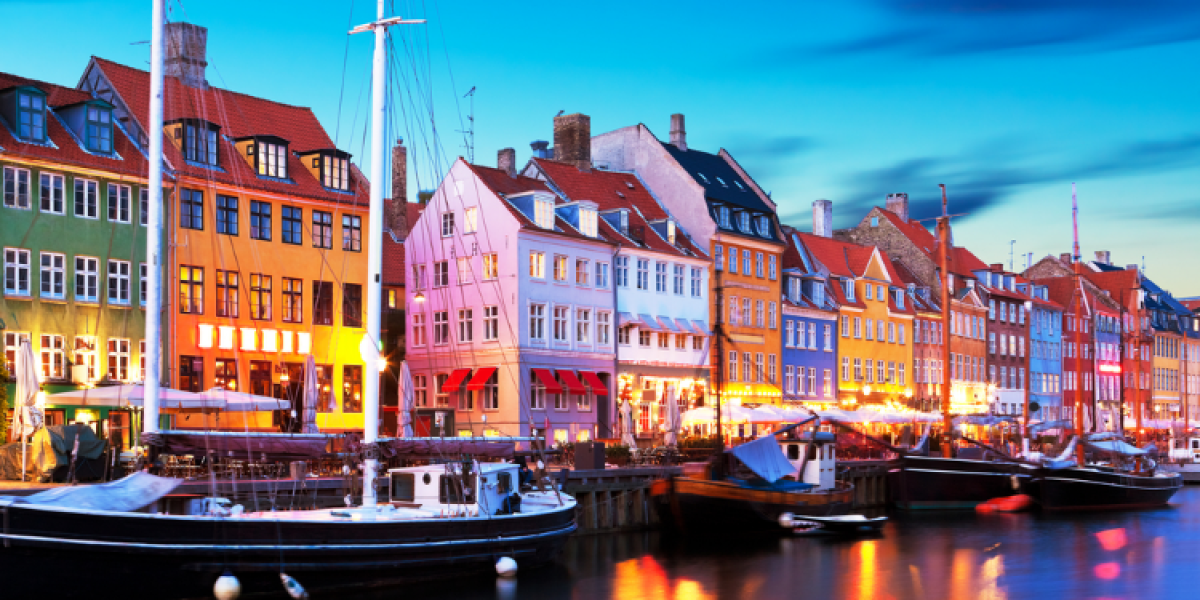
Besides being one of the world's safest countries, Denmark is also the least corrupt country according to the latest report by Transparency International – which is perhaps why it's gradually turning into a top expat destination. Job seekers, entrepreneurs, investors and even international students are keen on moving there for hygge. If you haven't made up your mind yet, here are five good reasons why moving to Denmark can be the best decision you have ever taken in your whole life.
A strong economy

A member of the European Union since 1973, Denmark can boast of its economic prosperity which mainly revolves around the welfare state and equal distribution of wealth. Today, it also ranks 14th worldwide for economic freedom even though it is relatively small compared to other countries. It ranks 6th in Europe. With a population of 5.7 million, Denmark offers an excellent quality of life and a high standard of living given the high wages and a range of benefits the Danes are entitled to. With a 2.1% economic growth rate, Denmark recorded a $ 286.8 billion Gross Domestic Product (GDP) in 2018. The Danish economy primarily relies on services, including tourism, education and health care, as well as information and communication technologies, industry, commerce, pharmaceutical production and manufacturing.
Plentiful job opportunities

With a low unemployment rate (5.7%), Denmark is a prime destination for those seeking new career prospects abroad. The ageing population significantly contributes to the Danish labour market's openness. Today, opportunities are plentiful in business services, engineering, human sciences, information and communication technologies, finance and insurance, education, healthcare and construction.Knowledge of Danish is recommended to work in Denmark, but you can still get away with a good command of English. While Copenhagen, the capital city, and the other major cities are home to many multinational companies and renowned Danish companies like Pandora, Danske Bank, Carlsberg Group, and Møller-Maersk, small and medium-sized companies are also looking for skilled international candidates.
High wages

There is no minimum wage in Denmark. Nevertheless, you can earn an average of DKK 38 505 per month, including accommodation, transport and other benefits. In general, the minimum wage is around 110 DKK per hour, given a 37-hour working week. Obviously, salaries vary from one sector to another and according to experience. For example, an experienced engineer can earn 419,461 DKK per month on average and a web developer around 504,247 DKK per month on average. It's also worth noting that Denmark has one of the smallest gender pay gaps among OECD countries. Besides, the country is making significant efforts to reduce inequality. Women, on the other hand, are eligible for generous parental leaves and allowances. While income tax in Denmark is high, think of the benefits like as free medical care and education if your children are accompanying you.
A conducive business climate

Denmark is a place where small and medium-sized enterprises thrive. Thanks to its dynamic entrepreneurial ecosystem, it is now one of the best places in Europe to start a business in. Besides its prosperous economy, the country can boast a highly skilled, competent, motivated, productive and flexible workforce, not to mention its state-of-the-art infrastructure. Denmark also stands out regarding innovation and research and development, as evidenced by a recent study by Bloomberg. Forbes magazine ranks Denmark 7th overall for freedom in trade (21st), innovation (12th), and property rights (12th). With one of the world's most efficient telecommunications networks, Denmark is at the crossroads of Europe's digital transformation. In recent years, the country succeeded in attracting large technology firms and start-ups, providing access to a vast market. Food, sustainable energy, life sciences and design and innovation are other promising fields for investment. It's worth noting that citizens of the European Union and European Economic Area nationals do not need a permit to start a business in Denmark. Also, the 22% corporate tax rate is below the OECD average.
Work-life balance

If you're mainly looking to boost your career in Denmark, keep in mind that living in Denmark goes well beyond that. Work-life balance is without any doubt one of the best things about this country. Its score of 9.1 out of 10 – which is above the OECD average – says it all. Given the 37-hour work week, the local work culture is flexible, so you don't have to worry if you have something urgent to take care of as long as you get the work done. Besides, Denmark offers generous paid leaves. If you have worked for a whole calendar year, you will be entitled to five weeks of paid leaves. You can still get two days off per month if you have worked for less than a year. Employees can also accumulate their paid leaves even when they change jobs and can claim their paid leaves upon leaving the country.



















